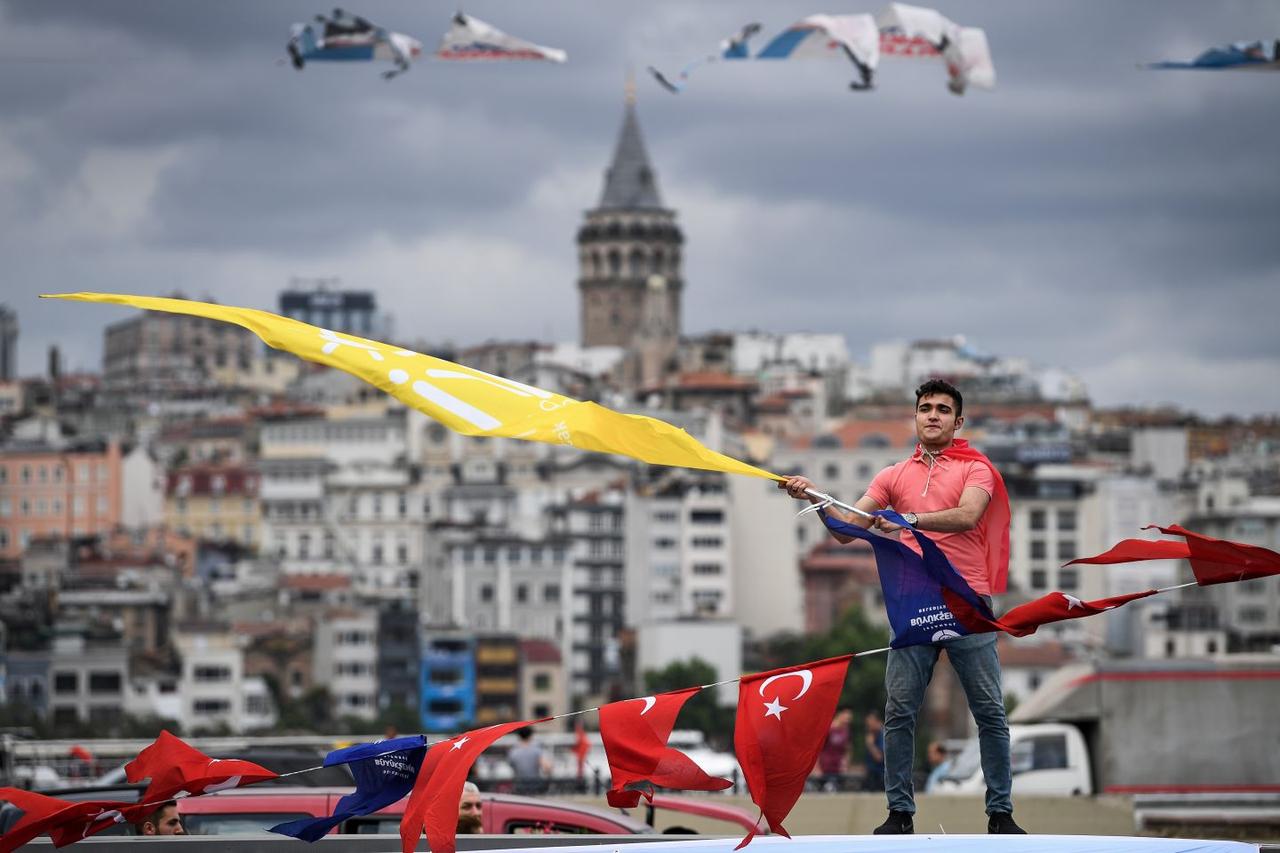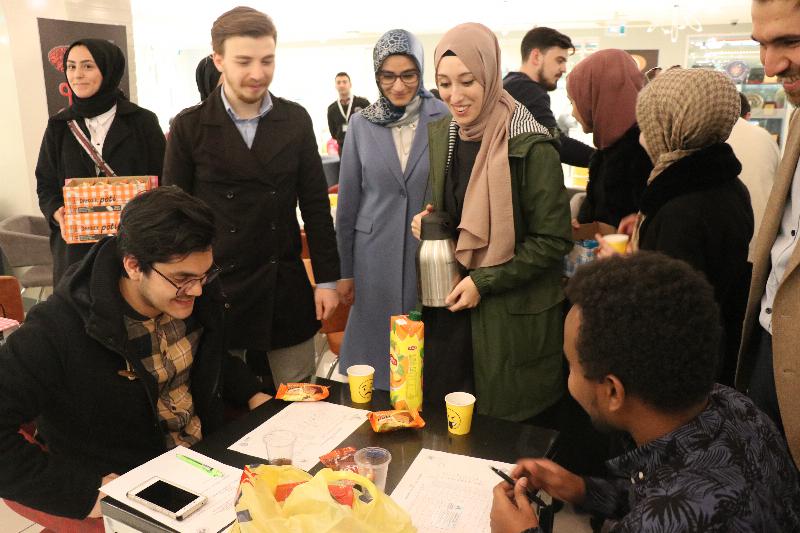
In Türkiye’s 2024 local elections, only eight young mayors were elected. Although many political parties in Ankara highlight the importance of young voices, recent research suggests that youth participation in formal politics remains heavily constrained.
A report recently released by Arayuz Campaign, based on interviews with 20 young individuals who ran for local office in 2024, provides a rare glimpse into their experiences. Titled “Youth Representation in Local Politics: Barriers and Experiences,” the report identifies entrenched institutional, cultural, and structural impediments that limit young candidates' access to power and influence.
While youth quotas and promotional materials present a modern and inclusive image, party structures and candidate selection processes often marginalize younger members in practice. The study’s findings suggest that symbolic representation has, in many cases, replaced meaningful political inclusion.

Young people entering politics cite a range of motivations: family traditions of political activism, personal frustration with the status quo, or experience gained in civil society.
While many of those interviewed said that growing up in politically active households instilled a sense of responsibility to engage in public affairs, others described their candidacy as a continuation of their work in advocacy groups and nongovernmental organizations (NGOs).
For them, local politics appeared as the most direct path to implement change on issues they had long worked on from outside formal institutions.
Still, candidacies are often greeted with a mixture of curiosity and condescension. Prospective young politicians say they frequently encounter questions about their qualifications, experience, and “readiness”—a line of skepticism rarely directed at their older counterparts.
Young candidates report that age-based hierarchies remain a defining feature of Turkish political parties. These hierarchies often dictate the pace and trajectory of political careers, with younger members expected to “wait their turn” regardless of qualifications or public support.
Beyond cultural resistance, young candidates face material barriers that significantly reduce their chances of success. Campaigns are expensive, and political parties—particularly in less competitive districts—seldom provide sufficient financial or logistical support to newcomers.
Unlike career politicians with party networks and institutional funding behind them, young candidates often rely on personal savings, family support, or local donations. The high cost of essential activities like printing materials, transportation, and staff compensation forces many to run lean campaigns, weakening their visibility.
In parallel, party nomination processes remain opaque and top-down. Senior leadership, not local branches or youth wings, typically holds the power to select candidates, leaving little room for internal competition or community-backed nominations.
The demand to balance full-time jobs or education with a labor-intensive campaign cycle adds another layer of difficulty. In the absence of internal party reform or external funding mechanisms, many young individuals are filtered out of politics before they can gain a foothold.

Many Turkish parties tout youth quotas or advisory roles meant to increase generational diversity, but insiders describe these efforts as largely cosmetic and rarely linked to real authority.
While youth branches exist in most major parties, they are often excluded from meaningful strategy-making or policy formulation.
Several candidates said they felt chosen not for their ideas, but for their image, offering parties a way to showcase inclusivity without ceding control.
Candidate selection typically remains in the hands of senior party officials, who tend to favor individuals seen as “low-risk.” As a result, youth participation is often limited to roles that serve the party’s public image rather than positions that allow for influence over strategy or policy.
In right-leaning parties in particular, a culture of hierarchy and deference reinforces the idea that youth should not seek leadership but wait to be appointed visibly. The phrase “positions are not requested, they are given” remains widely quoted among younger members, shaping the political etiquette they’re expected to observe.
Most young candidates describe a pattern in which their labor is welcomed, but their voices are not. Youth wings are often tasked with executing ground-level operations—mobilization, event planning, and canvassing—but excluded from strategic discussions and decision-making forums.
The sense of being used but not heard is widespread. Several young political actors describe their initial experiences with party politics as alienating, marked by informal exclusion, limited mentorship, and a lack of access to policy-making spaces.
When enthusiasm is channeled into underpaid labor rather than leadership development, political engagement can quickly turn into political burnout. In some cases, candidates withdrew from politics altogether after feeling tokenized or unsupported by their own party structures.

Young politicians often find broad verbal support among constituents—especially on social media—but that interest doesn’t always translate into tangible backing. Candidates reported high engagement online and in community events, but low voter turnout in their favor.
This gap points to a deeper contradiction: while many citizens say they want “new faces,” they often fall back on familiar names at the ballot box. For young candidates without a strong family name or established patronage, that makes gaining traction even more difficult.
Even when young candidates gain visibility, public support tends to remain superficial. Praise is often expressed in abstract or symbolic terms, and rarely translates into votes, funding, or meaningful collaboration.
Public praise can also carry unintended consequences. The framing of young candidates as “brave,” “ambitious,” or “idealistic” sometimes reinforces their status as outsiders or underdogs, rather than serious political actors deserving of votes and resources.
The usual saying stemmed from the current framework keeping young people positioned as “leaders of tomorrow,” a phrase that effectively postpones their agency in the present.
Unless political parties in Türkiye begin to treat young candidates as credible actors today, the country’s future leadership may remain stuck in symbolic gestures rather than substantive renewal.
Efforts to increase youth representation cannot rely solely on quotas or enthusiasm. They must address campaign financing, transparency in candidate selection, and the inclusion of youth voices in policymaking, not just campaign execution.